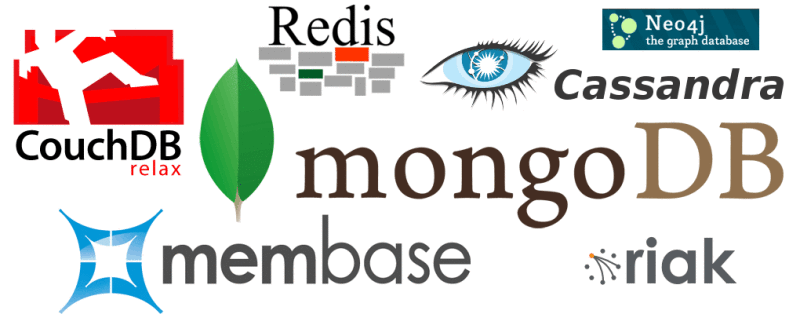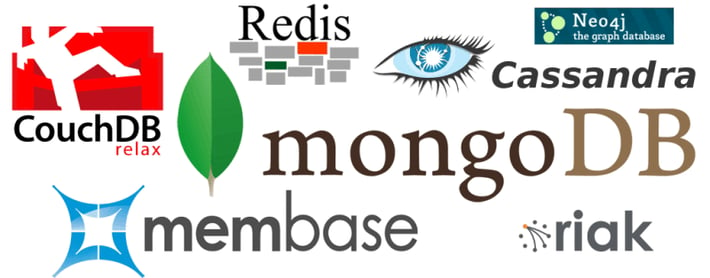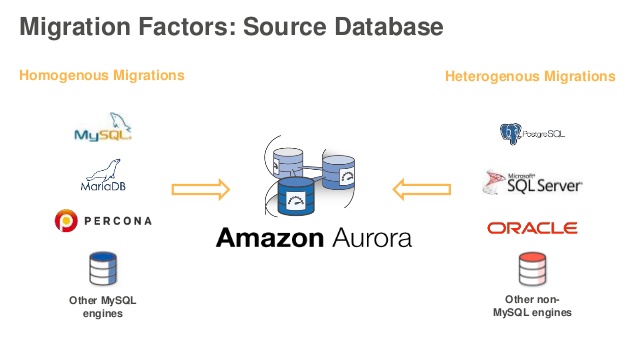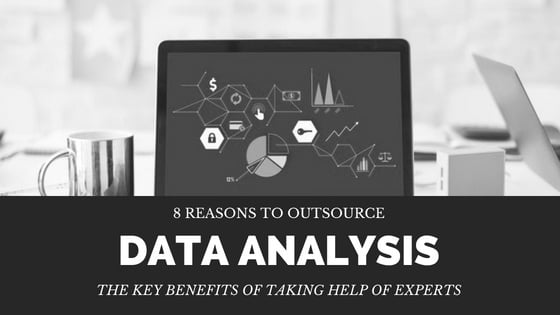Planning Database Migration to Aurora
Amazon Aurora is a MySQL compatible relational database engine that combines the speed, availability, and security of high end commercial databases...

When it comes to database technology the two main classifications are - SQL and NoSQL or, relational databases and non-relational databases. They can be differentiated in terms of the structure used, type of data, and the method of storage. Relational databases are used for structured information like school records while Non-relational databases are document-oriented and distributed like file folders.
The terms SQL and NoSQL indicate whether the database is written solely in structured query language (SQL) or not. In this blog, we’ll discuss in depth the meaning of SQL and NoSQL databases, how are they different and which one should be chosen based on individual cases.
Read More: Top 5 Open Source Big Data Tools
We cover a lot of technical topics in our resources. Feel free to check out our library of eBooks and grab your pick.

A relational database is a structured method of storing data in the form of tables i.e. rows and columns. The relational database is also called SQL database since it is written using the Structured Query Language (SQL). The rows represent entries while columns are used for classification of values. The relationship between these rows and columns is called schema. In a relational database, the description of schema serves as the basis for adding data.
For an SQL (or relational) database to be effective the data needs to effectively structured, thus leading to rigidity but better organization. SQL databases are popular among developers as they fit naturally into many software stacks, including LAMP and Ruby-based stacks. These databases are easy to understand and hence are widely supported.

Even though relational databases work well for structured data, their rigidity creates complications on dealing with unstructured data. This is where non-relational databases, come to the rescue, by offering greater flexibility than their traditional counterparts. To store, manage and analyze this unstructured data we use a schema-less alternative called NoSQL (Not only SQL) database.
As an alternative to tables, NoSQL databases use a document-oriented approach to database management. This means that non-structured data (such as text, images, social media data, videos etc. within a blog post) can be stored in a single document. These files will be easy to find but won’t be necessarily categorized into fields like in case of a relational database. It’s more flexible, but highly resource intensive in terms of processing and storage requirements. Hence is usually implemented through cloud computing.
Read More: Amazon DynamoDB vs MongoDB
Want to know about the latest technologies like Big Data, IoT, Cloud Computing, Augmented Reality etc.? Checkout our resources section and feel free to take a pick.
Let's compare SQL and NoSQL databases side by side in different scenarios to help you figure out the best fit for your requirements:
SQL databases supersede NoSQL when it comes to handling query intensive complex databases. The queries in themselves are more powerful in SQL in comparison to NoSQL. On a high level, NoSQL doesn’t have standard interfaces to perform complex queries.
When it comes to handling hierarchical data NoSQL database proves to be a better fit since it follows the key-value pair way of storing data which is similar to JSON data. In case of handling big data, NoSQL database is the go-to option because of extreme variations and volume.
SQL databases are vertically scalable. It means that increase in load can be managed by increasing the CPU, RAM, SSD, etc., on a single server. On the contrary, NoSQL databases can be scaled horizontally. You can increase the number of servers to handle the increase in traffic.
SQL databases are the appropriate solution for heavy transactional applications. Relational databases are more stable and ensure data integrity. While NoSQL offer scope for transactional application, it is highly limited and unstable making it unsuitable for complex transactional applications.
Support: Since SQL is easily understood by almost all software developers, it is easy to secure great support at an optimal cost. Even the major vendors have their own customer support teams. In case of NoSQL database, you will either need to consult specialists (which cost comparatively more) or rely on the community support.
As you have seen the choice between SQL and NoSQL databases depends largely on individual requirements. Both DBMS have their own pros and cons and you will need specialized skills to deal with the customer requirements. At NewGenApps, we have developed deep expertise in handling various software requirements (both mobile and web). If you have a new project or need help in deployment or migration of your existing data, feel free to get in touch.

Amazon Aurora is a MySQL compatible relational database engine that combines the speed, availability, and security of high end commercial databases...

Sometimes organizations struggle to turn even small data into useful information. It becomes a very hectic process for organizations to manage their...

CRM (Customer Relationship Management) is as of now amidst an intellectual transformation, and in the coming years, we won't consider Machine...